Mozambique: Parliament approves 2025-44 National Development Strategy - AIM
Mozambique: President enacts law creating country’s first sovereign wealth fund

File photo: Lusa
Mozambique’s president, Filipe Nyusi, has promulgated a law creating the Mozambique Sovereign Fund (FSM) that was approved in parliament in December, his office has announced.
In a statement released late on Monday, the office of the president said that the head of state had “promulgated and ordered the publication” of the law creating the fund, which is to be financed with the revenues generated from the export of natural gas.
“The aforementioned law was recently approved by the Assembly of the Republic and submitted to the President of the Republic for promulgation, and the head of state has verified that it does not contradict the Fundamental Law,” the statement reads.
On 15 December, the country’s parliament gave definitive approval to the creation of the FSM with funding to come from expected revenues from natural gas exploration, which by the 2040s should reach $6 billion a year. This was despite widespread criticism from the opposition, which expressed doubts about how the new fund will be managed.
The proposal to create the FSM, presented by the government, received 165 votes in favour in the final vote in parliament, only from members of the governing Frelimo party, while 39 opposition members voted against, from the main opposition, Renamo, and the smaller Mozambique Democratic Movement (MDM).
“Projections indicate that annual gas exports could amount to around 91.7 billion nominal dollars over the life cycle of the project, in a scenario in which all the development initiatives approved so far by the government are put into operation,” the minister of economy and finance, Max Tonela, had told parliament in the debate that preceded the vote. “In this scenario, annual revenues for the state will peak in the 2040s at more than six billion dollars a year.”
The creation of the fund had been under discussion for several months, with the government having withdrawn the proposal from debate in parliament more than once, claiming that it was trying to get consensus on its approval, which did not happen.
In the model for the creation of the FSM – whose operational manager is to be the central bank, the Bank of Mozambique – Tonela said that the government had taken into account “successful examples in the world and not-so-good cases” in which “countries that have had great resources and have taken advantage of the resources and have raised the standard of consumption of the state too much, have gone into too much debt and now the level of resources is reducing and they are entering a conflict in which they don’t have the capacity to have more resources.
“So this is the ultimate purpose of the fund,” he went on, stressing the need to look to the long term. “That’s why we have to look after current generations, but ensure that future generations can also benefit from the existence of resources that the country also has,” he explained, emphasising that the FSM will allow “resources to be found to finance the state budget in a situation where there is no more natural gas” to explore.
The bill creating the FSM, which Lusa has seen, states in the preamble that as part of the research activities carried out in Areas 1 and 4, in the offshore Rovuma block, “huge deposits of oil and non-associated natural gas” were discovered, estimated at around 180 trillion cubic feet.
In this context, the operators and partners in Areas 1 and 4 submitted three natural gas liquefaction projects to the government that have already been approved, namely the Coral Sul Liquefied Natural Gas FLNG, offshore, the Golfinho/Atum Liquefied Natural Gas and the Rovuma LNG.
At the same time, research work is underway in five oil and gas exploration and production concession areas, located in Angoche, in the Zambezi Delta, “with even greater benefits expected in the event of a commercial discovery,” according to official documents.
The FSM’s income is to come from the production of liquefied natural gas from areas 1 and 4, offshore in the Rovuma basin and future oil and natural gas development and production projects, as well as “return on investment from the fund’s income.”


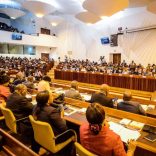
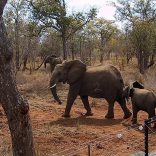

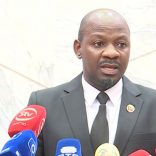
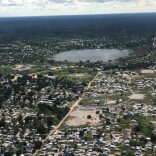
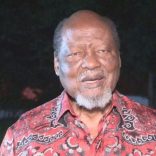





Leave a Reply
Be the First to Comment!
You must be logged in to post a comment.
You must be logged in to post a comment.